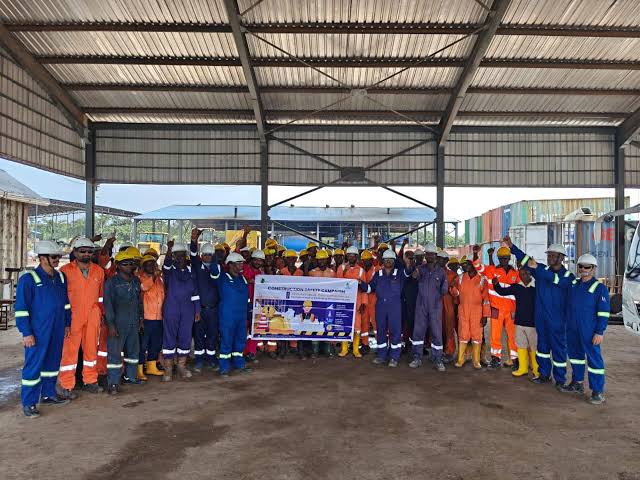Listeners:
Top listeners:
-
play_arrow
104.9FM Best rock music demo
-
play_arrow
Demo Radio Nr.1 For New Music And All The Hits!
-
play_arrow
Demo Radio Techno Top Music Radio
-
 play_arrow
play_arrow
Police Commissioner Launches Weapon and Riot Control Training for FCT Officers Democracy Radio
NCDMB Boss Says Human Capital Development Vital for Nigeria’s Oil and Gas Industry

By Chinedu Echianu
The Executive Secretary of the Nigerian Content Development and Monitoring Board (NCDMB) has reaffirmed that human capital remains the most critical asset for sustaining Nigeria’s oil and gas industry in the face of global transition and technological disruptions.
Speaking at the 2025 PENGASSAN Energy and Labour Summit (PEALS) in Abuja on Thursday, the Executive Secretary said that while infrastructure and reserves are important, it is the skills and competencies of Nigerians that will determine the sector’s long-term resilience and competitiveness.
The summit, themed “Building a Resilient Oil and Gas Sector in Nigeria: Advancing HSE, ESG, Investment and Incremental Production,” brought together labour leaders, industry stakeholders, government officials, and development partners.
The NCDMB chief, who spoke on the topic “Building Human Capacities for the Nigerian Oil and Gas Industry,” highlighted the Board’s ongoing efforts to embed capacity development across the sector.
“The oil and gas sector is technology-driven and knowledge-intensive. Assets and infrastructure are vital, but it is human capital that unlocks their value,” he said.
According to him, NCDMB has rolled out several initiatives to train and certify Nigerians for critical roles in the industry.
These include: The Nigerian Content Human Capital Development Implementation Strategy, which mandates training components in every major oil and gas project. Thousands of young Nigerians have already been trained in engineering, welding, underwater technology, and project management under this scheme.
Vocational and Technical Training Programs covering automation, mechatronics, marine operations, health and safety, and pipe fitting, to provide hands-on skills demanded by the industry.
Research and Development Capacity Building, supported through an R&D fund that encourages collaboration between universities, research institutions, and industry players.
The Executive Secretary also revealed that NCDMB continues to build capacity internally, ensuring its personnel are exposed to global best practices, digital skills, leadership training, and emerging energy technologies.
Looking ahead, he stressed that the oil and gas workforce must be agile and future-ready, given the accelerating trends of energy transition, digitalisation, and automation. He called for prioritising Science, Technology, Engineering, and Mathematics (STEM) education, expanding vocational training, and deepening collaboration among government, industry, and labour to align capacity-building with emerging opportunities.
“Human capacity is the true oil that lubricates the wheels of our industry. If we invest in our people, we can withstand shocks, adapt to change, and ensure that Nigeria’s oil and gas industry thrives for generations to come,” he concluded.
Written by: Democracy Radio
Similar posts
Copyright Democracy Radio -2024


